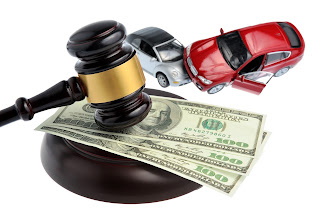 Safe Driving Tips for the Labor Day Weekend
Safe Driving Tips for the Labor Day WeekendThe people of Massachusetts love their holidays and Labor Day is no exception. The weather is still warm and (hopefully) sunny; the beaches and summer hotspots are still open; and it is one last chance to party before the fall swoops in with winter soon to follow. It sounds dramatic, but New Englanders know all too well what will be here in a few short months. The Labor Day weekend is a great opportunity to enjoy family and friends before school and football season get underway.
Called one of the busiest “road trip” weekends of the year, hundreds of thousands of cars, trucks and motorcycles will traverse the Massachusetts highways this coming weekend. More vehicles mean more traffic, which means more unsafe drivers on the roads. It also means that law enforcement will be everywhere, patrolling the city streets and highways. While everyone should take full advantage of this exciting long weekend, it is important to keep in mind some important, friendly reminders regarding driving safety. After all, the number of motor vehicle accidents in Massachusetts is consistently increasing at an alarming rate – and distracted driving is a big reason for this.
1. DON’T DRINK, DO DRUGS OR TEXT AND DRIVE!!!! We do not see as many drunk driving commercials as we used to, but this very serious problem still exists. Some drivers make first-time mistakes while others are repeat offenders. Teens and college students often do not realize how alcohol affects them until it is too late. Adults often know that they shouldn’t be driving but decide to risk it anyway. Even one drink may be too many when deciding whether to get behind the wheel. Before you find yourself in a situation where you hurt yourself or others, or are arrested and need the help of a good attorney, don’t take a chance. It is not worth it.
Along the same lines, do not text while driving. Whatever it is, it can wait. In addition to keeping yourself out of an accident, set a good example for your kids. Unfortunately, teens are some of the worst offenders when it comes to texting while driving. If you or a loved one cause an accident due to driver distraction OR you are in accident due to the negligence of someone else, contact an experienced personal injury attorney in Massachusetts as soon as practically possible.
2. Watch Out for Motorcycles, Pedestrians and Bad Drivers: The holiday weekend plus the warm weather mean that many motorcyclists will be out in full force as they take their final rides of the season. Motorcycles are tricky to see even in the best road conditions, and they are even harder to see when there is lots of traffic clogging the highways.
Downtowns will be filled with people dining, shopping and seeing the sights. Be aware of pedestrians while driving on these streets. In addition to the growing number of “regular” car accidents, pedestrian-related car accidents in Massachusetts are also on the rise. During this holiday weekend, drive slowly and scan the roads in front of you.
3. Avoid Driving at Night: Evenings and late nights often signal the end of day trips and barbeques. Swarms of drivers will hit the roads during these times. And some of them will be too impaired to drive properly. While nighttime driving is always more difficult due to hidden dangers, it is even more so during holiday weekends.
Make good decisions, drive carefully, and enjoy your Labor Day weekend!
By George C. Malonis
___________________________________________________________________________






